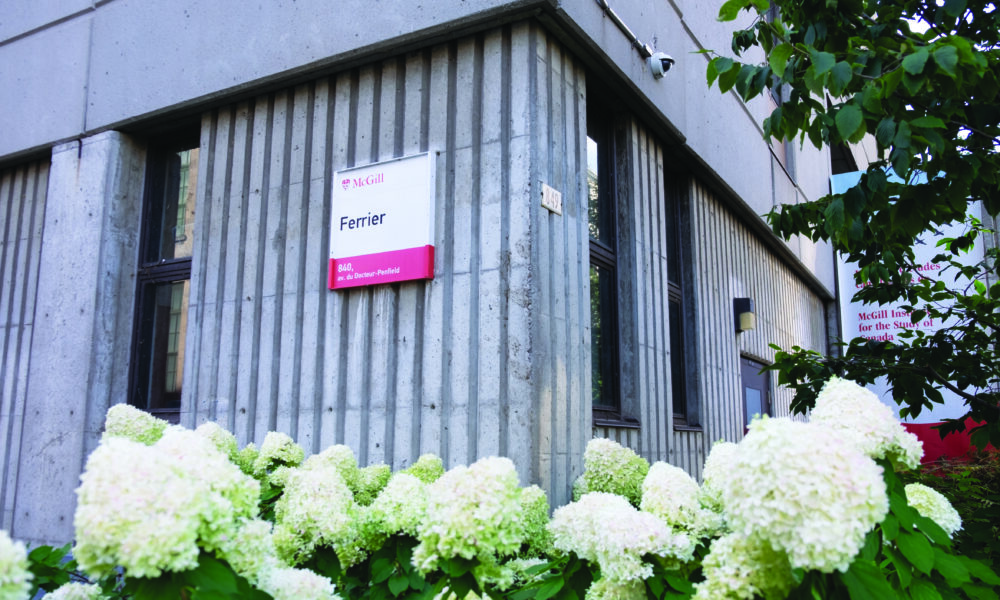On July 27, the McGill community received an alert from Interim Vice-Principal for Administration and Finance Diana Dutton that water advisories had been issued for six McGill buildings: La Citadelle, Carrefour Sherbrooke, Elizabeth Wirth, Ferrier, Thomson House, and 3647 Peel. Routine water testing found that the lead levels in the buildings’ water sources exceeded the Government of Quebec’s thresholds. Over a month later, Ferrier, Thomson House, and 3647 Peel are still under the advisory. In addition, a new advisory was issued for the Barton building on the Macdonald Campus on Aug. 25.
Exposure to lead, even in small amounts, can cause serious health issues including high blood pressure, miscarriages, and even death. Lead can enter water sources from old pipes. The Government of Quebec’s website writes that buildings built past 1989 are very unlikely to have lead in their plumbing systems.
According to McGill Media Relations Officer Frédérique Mazerolle, lead tests are conducted annually. Mazerolle explained the protocols McGill follows in case water exceeds provincial thresholds—anything above five micrograms of lead per litre of water—to protect community members from ingesting the water.
“Warning signs are put up next to faucets, drinking fountains are turned off, and building directors provide information on other sources of drinking water,” Mazerolle wrote to The Tribune. “If possible, community members are directed to other locations for water. In the recent case of two student residences, bottled water was provided. For Carrefour Sherbrooke, where the advisory lasted four weeks, the second step was installing reverse osmosis filters to reduce dependence on bottled water.”
Lara Landauro, U3 Science, worked as a McGill Summer Academy (MSA) Crew Member when the advisories were first issued. MSA students were housed in McGill residences and were affected by the advisories put into place. Landauro wrote to The Tribune that, ultimately, the response was quick and the situation was handled smoothly.
“We weren’t able to drink the water from the hotel for several days. The hotel would give us water bottles instead,” Landauro wrote. “McGill responded well to the issue, finding a solution to our problem. It would have been better if the water problem was fixed earlier.”
While advisories have been lifted for Carrefour Sherbrooke, La Citadelle, and Elizabeth Wirth, three downtown campus buildings have yet to be put in the clear.
André Pierzhala, Operations Manager for the Post-Graduate Student Society said that Thomson House, one of the remaining affected buildings, has been dealing with the advisory by buying bottled water for students and the kitchen’s use. Pierzhala shared that Thomson House was initially given two pallets of water by the university and, subsequently, he has been buying large jugs to use around the building.
“It’s a different way of operating […] and it works,” Pierzhala said in an interview with The Tribune. “It hasn’t prevented us from running our operation. It’s not the end of the world, it’s more of a nuisance but […] as far as a crisis goes, I prefer having this as a crisis than something that’s a lot more serious.”
Pierzhala also noted that action on the part of the administration was swift given the circumstances.
“This is something that crept up and surprised everyone,” Pierzhala said. “The response from the institution was extremely quick in installing filters, specifically designed to remove lead from the water. So, I have to thank them because they were very responsive, very quick.”
Further testing for the downtown campus buildings was conducted on Aug. 28, the results of which will be released in the coming days.









